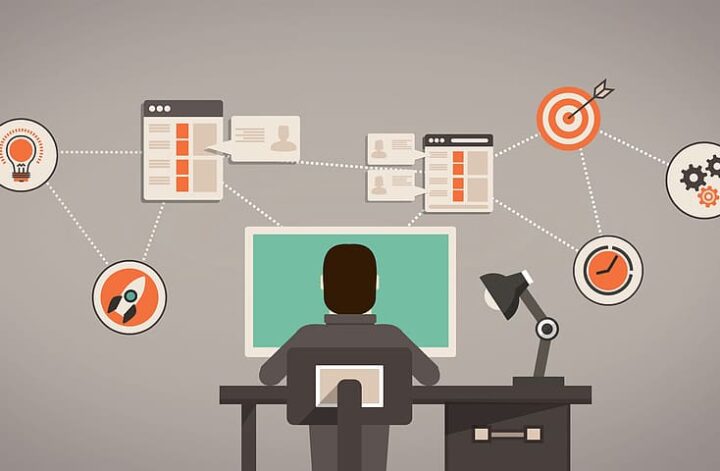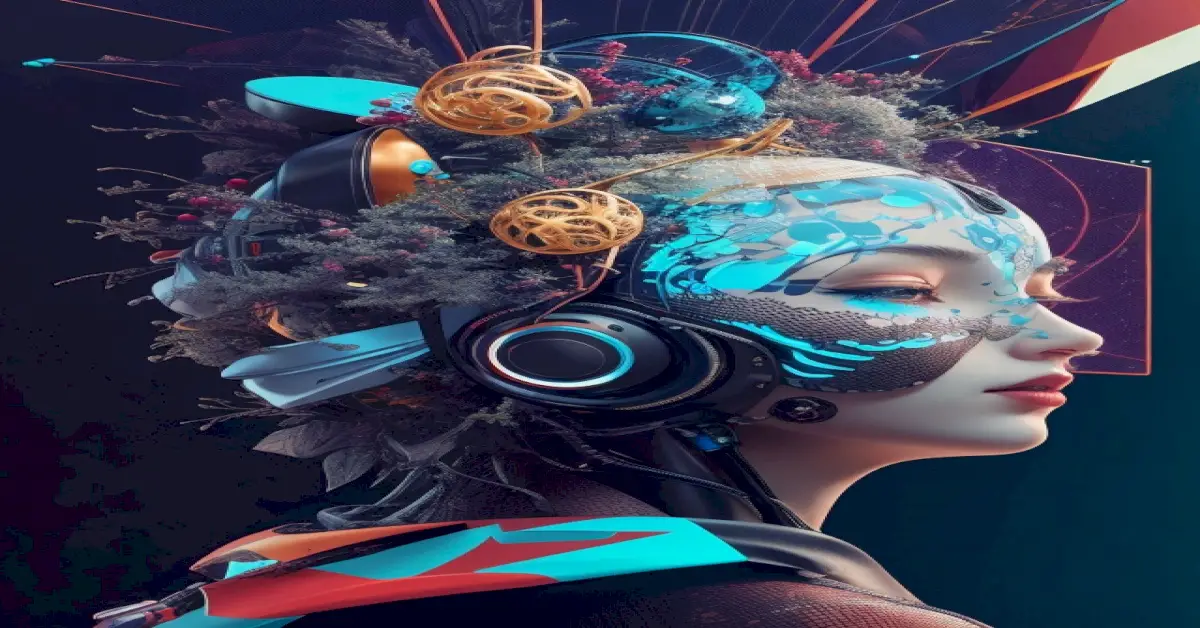As we move forward into the future, artificial intelligence (AI) tools are set to transform the way we work. These advanced technologies offer immense potential to streamline processes, improve efficiency, and enable us to achieve more in less time. At the forefront of this transformation are AI tools that automate repetitive tasks, analyze data more accurately, and communicate with humans through natural language processing. With these tools, the future of work is brighter than ever before.
Key Takeaways
- AI tools are revolutionizing the way we work and increasing efficiency.
- Automation of repetitive tasks allows employees to focus on more complex and creative work.
- Natural language processing is enabling seamless communication between humans and machines.
- AI tools facilitate collaboration and knowledge sharing across teams and time zones.
- The future of work is here, and AI tools are leading the way towards a more productive tomorrow.
Harnessing the Potential of AI Tools
As we discussed earlier, AI tools have the power to revolutionize work processes, increasing efficiency, and paving the way for a more productive future. In this section, we will delve deeper into the practical applications of AI tools and how organizations can harness their potential to unlock new levels of efficiency and effectiveness.
Firstly, AI tools can significantly improve efficiency by streamlining processes. For instance, automation of data analysis eliminates the need for manual data entry and analysis, saving time and reducing the risk of errors. This allows employees to focus on more complex tasks requiring human input, such as decision-making and strategy planning, thus increasing productivity and job satisfaction.
Moreover, AI tools can assist in decision-making processes, providing valuable insights that can inform strategic planning and lead to more informed decisions. For instance, AI-powered forecasting tools can predict future outcomes, enabling organizations to make proactive decisions and stay ahead of the competition.
Another important application of AI tools is in enhancing customer experiences. Chatbots and virtual assistants powered by AI provide 24/7 customer support by automating responses to frequently asked questions.
This not only improves customer satisfaction but also reduces the workload on employees, allowing them to focus on providing more personalized and meaningful interactions with customers.
Finally, AI-powered tools can also facilitate collaboration within organizations. For example, natural language processing can help teams work more seamlessly together by analyzing and interpreting various communication channels. With AI tools, employees can work together across distances and time zones, enabling true teamwork and collaboration.
Overall, AI tools have immense potential in enhancing efficiency, streamlining processes, and facilitating collaboration within organizations. By embracing these advanced technologies, organizations can expect to see significant improvements in productivity and effectiveness.
The Impact of AI Tools on the Workforce
As we continue to explore the transformative power of AI tools in the workplace, it’s important to consider the impact these advanced technologies are having on the workforce. By automating certain tasks, AI tools are reshaping the dynamic between employees and their work, allowing for increased collaboration and productivity.
One significant impact of AI tools on the workforce is the ability to free up time for employees to focus on more complex and creative work. With repetitive tasks automated, employees are able to shift their attention to tasks that require a higher level of cognitive input. This not only increases job satisfaction, but also results in more innovative and effective solutions.
Furthermore, AI-powered tools facilitate collaboration and knowledge sharing among teams. With the ability to work more seamlessly together across distances and time zones, teams are able to tackle complex projects more efficiently, with greater levels of communication and cooperation.
AI Tools and Collaboration

Collaboration lies at the heart of many successful businesses, and AI tools are making it easier than ever before to foster a culture of teamwork and knowledge sharing. Through automated translation and natural language processing, AI tools can overcome communication barriers, enabling colleagues to share insights and expertise even when they speak different languages.
Another way AI tools are facilitating collaboration is through shared workspaces and digital whiteboards. These tools allow teams to work together on projects in real-time, providing a platform for brainstorming, problem-solving, and idea sharing. This results in more efficient and effective collaboration, leading to better solutions and higher quality work.
The Future of Workforce
As AI tools continue to evolve and become more sophisticated, we can expect to see even greater changes in the workforce dynamic. With the ability to automate an increasing number of tasks, we may see a shift towards more specialized roles that require a higher level of expertise and creativity.
Additionally, we may see an increased emphasis on continuous learning and development, as employees will need to stay up-to-date with the latest AI tools and technologies. This will require a commitment to ongoing education and training, both for employees and employers, in order to remain competitive in an ever-changing job market.
In conclusion, AI tools are having a significant impact on the workforce, enabling greater levels of collaboration and productivity. As businesses continue to embrace these technologies, we can expect to see even more exciting changes in the future of work.
Conclusion
Overall, we can see that the future of work is being shaped by the transformative power of AI tools. As we have explored in the previous sections, these tools offer immense potential for increasing efficiency, streamlining processes, and improving collaboration.
It is clear that organisations that embrace AI tools will be better positioned to succeed in an increasingly competitive marketplace. By automating repetitive tasks and empowering employees with advanced analytics, natural language processing, and other AI-powered capabilities, organisations will unlock new levels of productivity and innovation.
However, it is important to note that AI tools are not a panacea. To fully realise the benefits of these advanced technologies, organisations must also invest in training and development programs to ensure that their employees have the skills they need to succeed in an AI-driven future.
The Role of Ethics and Regulation
Finally, it is essential that we consider the ethical and regulatory implications of AI tools. As these technologies continue to advance, it is important that we maintain a careful balance between innovation and responsible use.
Organisations must be transparent about their use of AI tools, and ensure that they are not perpetuating bias or discrimination in their decisions. Additionally, governments must play a key role in developing regulations that protect individuals and society as a whole from the potential harms of AI tools.
By working together to unleash the potential of AI tools while also safeguarding against their potential downsides, we can create a future of work that is both innovative and equitable.
FAQ
What are AI tools?
AI tools are advanced technologies that utilize artificial intelligence to perform various tasks, such as data analysis, natural language processing, and decision-making, in order to enhance work processes and increase efficiency.
How do AI tools enhance work processes?
AI tools streamline workflows by automating repetitive tasks, allowing employees to focus on more complex and creative work. They also enable faster and more accurate data analysis, facilitate decision-making processes, and improve overall efficiency.
What are the practical applications of AI tools?
AI tools have a wide range of practical applications in the workplace. They can be used for automated data analysis, predictive analytics, virtual assistants, chatbots, natural language processing, and machine learning, among others.
How do AI tools impact the workforce?
AI tools reshape the workforce dynamic by automating certain tasks, freeing up employees to focus on more complex and creative work. This leads to improved job satisfaction and productivity. Additionally, AI-powered tools facilitate collaboration and knowledge sharing, enabling teams to work more seamlessly together.
What can organizations expect by embracing AI tools?
By embracing AI tools, organizations can expect significant improvements in productivity, efficiency, and collaboration. These advanced technologies offer immense potential for streamlining processes, increasing efficiency, and unlocking new levels of innovation and productivity in the workplace.



